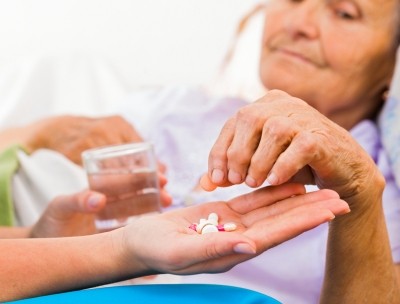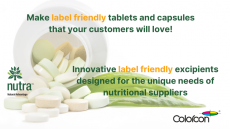Remember the other 9 DHA health claims? DSM shoots for DHA and memory claim

While there have already been nine health claim approvals for docosahexaenoic acid (DHA), this latest claim would make a first for memory if approved by the European Food Safety Authority (EFSA).
The authority has rejected 28 memory claims so far, including one from UK company Vifor Pharma for its product Eye q – a combination of eicosapentaenoic acid (EPA), DHA and gamma-linolenic acid (GLA) – and the improvement of ‘working memory’ in children.
Of the DHA claims approved – including vision, infant development, heart function and blood pressure – the closest to memory was “maintenance of normal brain function”.
While similar, DSM told us this brain claim was still too ‘generic’ to hold weight with the consumer.
“A specific health claim related to memory seems to us important in a demographic situation with an ageing population where memory loss is one of the concerns of the elderly generation. This benefit of DHA related to the health claim can be translated into better remembering names, telephone numbers, etc. – things people relate to,” the company said.
Yet Euromonitor International analyst Simone Baroke said DSM’s application was likely to follow the same fate as the likes of creatine, choline and gamma-linolenic acid, which were all rejected by EFSA for memory health.
She said while DSM had a strong body of science behind it for DHA and memory, it was shooting too high with its wording since “improved memory function” would be hard to quantify depending on the baseline used and EFSA tended to favour looser wording like “contributes to the normal function of...”.
“This is always the same problem with EFSA-approved claims – consumers can’t relate to them. This is part of the same old story. The claims are scientifically sound for EFSA but meaningless for consumers
because they are not explicit enough.”
EFSA rejected Vifor Pharma’s memory claim dossier back in 2010 because the evidence provided did not establish a “biologically plausible mechanism” by which the ingredients could improve memory.
DSM argues DHA is an essential structural component of nervous tissue shown to enhance neurotransmission via increased synaptic plasticity.
What if?
If the claim is approved though, Baroke said it still wouldn’t be an easy sell. While cognitive health is a key public health concern with ageing populations and a rise in dementia and Alzheimer's, consumers are less drawn by long-term health benefits than short-term tangible benefits like cardiovascular health or energy boosting.
Such health claims are only likely to attract older 55+ consumers that are already experiencing loss of memory. However, she conceded that of all the cognitive health issues, memory is among the most accessible for consumers.
Indeed, despite this challenge, food supplements positioned for memory health are bringing in sales. According to Euromonitor International such products are worth $341.1m (€311.05m) in Europe in 2014 - up from $323.3m (€294.74m) in 2012.
DSM told us the application sought to target a population of healthy adults aged over 45 years and outlined a daily dose of a minimum of 1 g DHA and EPA, of which a minimum of 580 mg must be DHA.
It said evidence existed for adults with mild memory complaints assessed by tests on episodic memory, the memory of autobiographical events like times, places and associated emotions.
The company published meta-analysis on the topic in March in the journal PLoS One.
DSM manufactures it’s omega-3 brand life’sDHA – acquired from Martek Biosciences for €830m in 2011 – from algae. It appears in foods, drinks and food supplements globally.
















